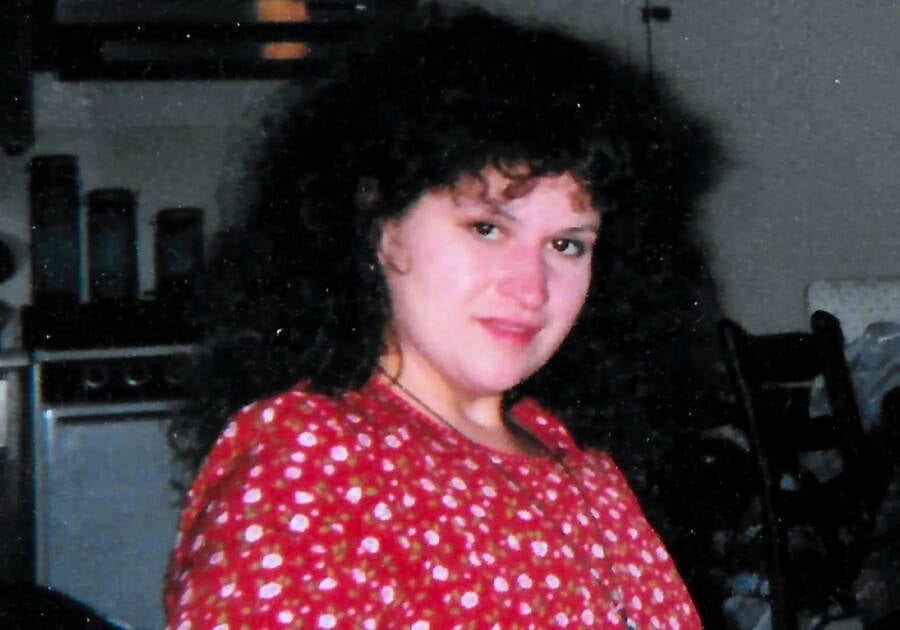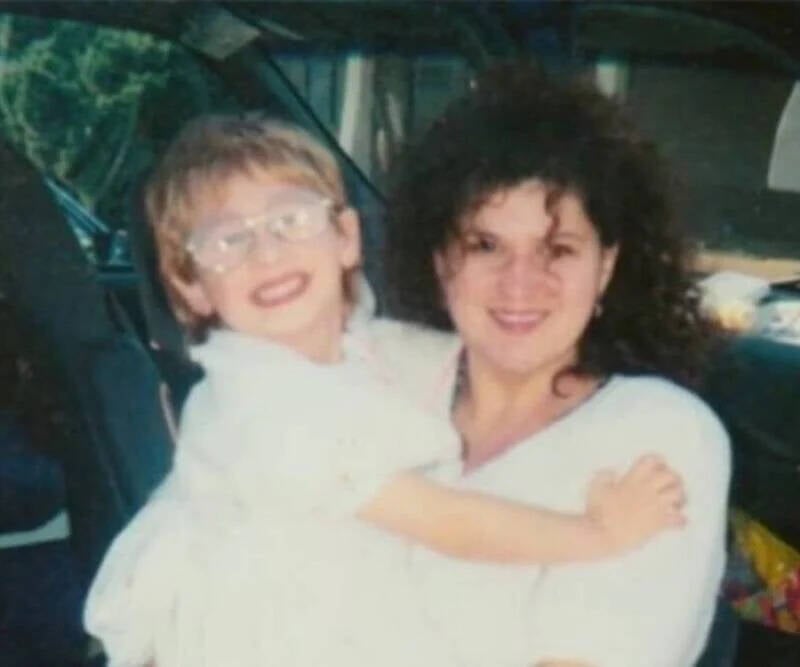The story of Dee Dee Blanchard and her autopsy has captured global attention, sparking discussions about medical ethics, parental control, and deception. This case delves into the darker side of caregiving and exposes how far someone might go to maintain control over another person's life. In this article, we will explore the details surrounding Dee Dee Blanchard's life, her mysterious death, and the findings from her autopsy report.
Dee Dee Blanchard's story is not just a tragedy but also a cautionary tale about the dangers of manipulation and abuse disguised as care. Her life and death have become a subject of fascination for many, as the layers of deceit surrounding her case continue to unravel. Through this article, we aim to provide a comprehensive understanding of the events leading up to her autopsy and its implications.
As we delve deeper into the details, it is essential to approach this topic with sensitivity, recognizing the human aspects involved. Understanding the circumstances that led to Dee Dee Blanchard's autopsy helps shed light on the broader issues of mental health, parental authority, and the importance of transparency in caregiving.
Read also:Telegram 2025 Wasmo Exploring The Future Of Messaging And Community Building
Biography of Dee Dee Blanchard
Early Life and Background
Gail "Dee Dee" Blanchard was born on January 18, 1966, in Springfield, Missouri. From a young age, she demonstrated a strong desire to be a caregiver, which eventually shaped her life's trajectory. Her early years were marked by a series of personal challenges, including marital issues and financial struggles. Despite these obstacles, Dee Dee remained focused on her role as a mother to her only child, Gypsy Rose Blanchard.
Below is a summary of Dee Dee Blanchard's personal details:
| Full Name | Gail "Dee Dee" Blanchard |
|---|---|
| Date of Birth | January 18, 1966 |
| Place of Birth | Springfield, Missouri |
| Occupation | Homemaker and Caregiver |
| Marital Status | Divorced |
| Children | Gypsy Rose Blanchard |
Dee Dee Blanchard Autopsy: The Investigation Begins
Unraveling the Mystery of Her Death
The investigation into Dee Dee Blanchard's death began shortly after her body was discovered in their Springfield home on June 9, 2015. Authorities were immediately alerted to suspicious circumstances surrounding her passing, prompting a thorough examination. The autopsy played a crucial role in uncovering the truth behind her death.
Key aspects of the investigation included:
- Examining the scene of the crime
- Interviewing potential witnesses
- Analyzing medical records
- Reviewing communication logs
Autopsy Report Findings
Medical Insights and Forensic Analysis
The autopsy report revealed that Dee Dee Blanchard died from multiple stab wounds inflicted by her daughter, Gypsy Rose Blanchard, and her then-boyfriend, Nicholas Godejohn. The forensic analysis detailed the extent of the injuries and provided insights into the sequence of events leading to her death.
According to medical examiner Dr. James R. Gill, the cause of death was determined to be homicide due to sharp force trauma. This finding corroborated with evidence collected at the crime scene, further solidifying the case against the perpetrators.
Read also:Movierulz 2024 Ndash Download Kannada Movies A Comprehensive Guide
Dee Dee Blanchard's Health Deceptions
Unveiling the Illness Fraud
One of the most shocking revelations in the Dee Dee Blanchard case was the extent of her deception regarding her daughter's health. For years, Dee Dee claimed that Gypsy Rose suffered from a variety of severe medical conditions, including muscular dystrophy and leukemia. This claim was later proven false during the investigation.
Medical experts reviewed Gypsy's health records and found no evidence supporting Dee Dee's assertions. Instead, it was discovered that Gypsy was a healthy young woman who had been confined to a wheelchair as part of her mother's elaborate scheme. The autopsy findings added to the growing body of evidence exposing Dee Dee's manipulation.
The Role of Gypsy Rose Blanchard
From Victim to Accomplice
Gypsy Rose Blanchard's transformation from a seemingly helpless victim to a key figure in her mother's murder is one of the most intriguing aspects of the case. Testimonies and evidence presented during the trial revealed that Gypsy played an active role in planning and executing the murder.
Psychologists have since analyzed Gypsy's behavior, suggesting that years of psychological manipulation and control by Dee Dee may have contributed to her involvement in the crime. The autopsy findings provided critical evidence supporting this theory, highlighting the complex dynamics between mother and daughter.
Legal Implications of Dee Dee Blanchard Autopsy
Building the Case Against the Accused
The autopsy findings were instrumental in building a strong case against Gypsy Rose Blanchard and Nicholas Godejohn. Prosecutors used the detailed forensic analysis to demonstrate premeditation and intent, key elements in securing a conviction for first-degree murder.
During the trial, both defendants were found guilty and sentenced to lengthy prison terms. The legal proceedings highlighted the importance of thorough investigations and the role of forensic evidence in achieving justice.
Public Reaction and Media Coverage
Dee Dee Blanchard Autopsy in the Spotlight
The Dee Dee Blanchard case garnered significant media attention, with the autopsy findings becoming a focal point of public discourse. News outlets and documentaries, such as the popular series "Killer Kids," delved into the details of the case, sparking debates about mental health, parental authority, and the ethics of caregiving.
Public opinion was divided, with some sympathizing with Gypsy Rose's plight while others condemned her actions. The widespread coverage of the case underscored the need for greater awareness and understanding of the psychological impacts of manipulation and abuse.
Psychological Aspects of the Case
Understanding the Dynamics of Abuse
Psychologists have extensively studied the Dee Dee Blanchard case to understand the psychological dynamics at play. The autopsy findings, combined with testimonies and evidence, revealed a pattern of manipulation and control that extended far beyond traditional caregiving.
Experts suggest that Dee Dee's behavior may have stemmed from a combination of factors, including narcissistic tendencies and a desire for attention. These insights are crucial in identifying and addressing similar cases of abuse and manipulation in the future.
Lessons Learned from Dee Dee Blanchard Autopsy
Preventing Future Tragedies
The Dee Dee Blanchard case serves as a stark reminder of the importance of transparency and accountability in caregiving situations. The autopsy findings highlighted the critical need for vigilance and intervention in cases involving suspected abuse or manipulation.
Efforts to prevent similar tragedies include:
- Enhancing awareness about the signs of abuse
- Improving support systems for victims
- Strengthening legal protections for vulnerable individuals
Conclusion
The story of Dee Dee Blanchard and her autopsy is a complex narrative that explores themes of deception, abuse, and justice. Through this article, we have examined the key aspects of the case, including the investigation, autopsy findings, and their broader implications. Understanding the circumstances surrounding Dee Dee Blanchard's death is essential in addressing the underlying issues of manipulation and control in caregiving relationships.
We invite you to share your thoughts and insights in the comments section below. Additionally, consider exploring other articles on our site that delve into similar topics. Together, we can foster a greater understanding of the challenges faced by individuals in caregiving situations and work towards creating a safer, more supportive environment for all.
Table of Contents
- Biography of Dee Dee Blanchard
- Dee Dee Blanchard Autopsy: The Investigation Begins
- Autopsy Report Findings
- Dee Dee Blanchard's Health Deceptions
- The Role of Gypsy Rose Blanchard
- Legal Implications of Dee Dee Blanchard Autopsy
- Public Reaction and Media Coverage
- Psychological Aspects of the Case
- Lessons Learned from Dee Dee Blanchard Autopsy
- Conclusion


